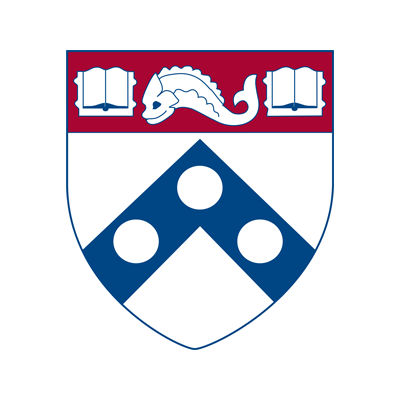Request Demo
Last update 08 May 2025
HCV NS4A
Last update 08 May 2025
Basic Info
Synonyms- |
Introduction- |
Related
1
Drugs associated with HCV NS4AMechanism HCV NS4A inhibitors [+3] |
Active Org. |
Originator Org. |
Active Indication |
Inactive Indication |
Drug Highest PhasePhase 2 |
First Approval Ctry. / Loc.- |
First Approval Date20 Jan 1800 |
3
Clinical Trials associated with HCV NS4ANCT03674125
A Multi-center, Open-label, Dose-ranging, Phase 1 Study to Evaluate the Safety, Tolerability, and Immunogenicity of GLS-6150, Administered ID and Followed by Cellectra® 2000 Healthy Adults and in Persons Previously Treated for Hepatitis C Virus Infection.
Hepatitis C virus (HCV) is an enveloped, single strand, positive sense RNA flavivirus. Infection by HCV is typically chronic, although an estimated
10-20% may spontaneously clear the virus. HCV affects between 1.3 - 2 billion individuals, or 2-3% of the global population. HCV has a seroprevalence of approximately 1% in developed countries such as the US and Korea. Chronic HCV infection leads to hepatic fibrosis and cirrhosis. This Phase I study will evaluate the safety, tolerability and immunogenicity of GLS-6150 administered intradermally (ID) followed by electroporation at 1.0 mg and 2.0 mg/dose assessing 3 and 4-dose regimens.
10-20% may spontaneously clear the virus. HCV affects between 1.3 - 2 billion individuals, or 2-3% of the global population. HCV has a seroprevalence of approximately 1% in developed countries such as the US and Korea. Chronic HCV infection leads to hepatic fibrosis and cirrhosis. This Phase I study will evaluate the safety, tolerability and immunogenicity of GLS-6150 administered intradermally (ID) followed by electroporation at 1.0 mg and 2.0 mg/dose assessing 3 and 4-dose regimens.
Start Date04 Sep 2018 |
Sponsor / Collaborator |
NCT02772003
Phase I Trial of a Therapeutic DNA Vaccine for Chronic Hepatitis C Virus (HCV) Infection
This phase I trial studies the side effects and best dose of deoxyribonucleic acid (DNA) vaccine therapy in treating patients with hepatitis C virus (HCV) infection that persists or progresses over a long period of time. Vaccines made from DNA may help the body build an effective immune response to kill cancer cells that express HCV infection.
Start Date06 Jun 2016 |
Sponsor / Collaborator |
NCT02027116
Multi-center, Open-label, Dose Escalation, Phase I Trial to Evaluate the Safety, Tolerability and Immunogenicity of VGX-6150 for Second-line Therapy of Chronic Hepatitis C Infection
To evaluate the safety, tolerability and immunogenicity of VGX-6150 as second-line therapy in chronic hepatitis C patients
Start Date01 Jan 2014 |
Sponsor / Collaborator |
100 Clinical Results associated with HCV NS4A
Login to view more data
100 Translational Medicine associated with HCV NS4A
Login to view more data
0 Patents (Medical) associated with HCV NS4A
Login to view more data
16
Literatures (Medical) associated with HCV NS4A01 Dec 2018·Emerging Microbes & InfectionsQ2 · MEDICINE
Adaptive mutation F772S-enhanced p7-NS4A cooperation facilitates the assembly and release of hepatitis C virus and is associated with lipid droplet enlargement
Q2 · MEDICINE
ArticleOA
Author: Li, Yi-Ping ; Xu, Zhanxue ; Xia, Jinyu ; Ma, Ling ; Yuan, Guosheng ; Zhou, Yuanping ; Liu, Xi ; Chen, Yiyi ; Duan, Xiaobing ; Anwar, Muhammad Ikram
01 Oct 2015·Molecular Medicine ReportsQ4 · MEDICINE
Hepatitis C virus NS3 protein modulates the biological behaviors of malignant hepatocytes by altering the expression of host cell microRNA
Q4 · MEDICINE
Article
Author: Zhang, Jun ; Takegami, Tsutomu ; Ishigaki, Yasuhito
01 Jan 2014·Journal of VirologyQ2 · MEDICINE
Hepatitis C Virus RNA Replication and Virus Particle Assembly Require Specific Dimerization of the NS4A Protein Transmembrane Domain
Q2 · MEDICINE
Article
Author: Kohlway, Andrew ; Engelman, Donald M. ; Barrera, Francisco N. ; Pyle, Anna M. ; Potapova, Olga ; Lindenbach, Brett D. ; Pirakitikulr, Nathan
Analysis
Perform a panoramic analysis of this field.
login
or

AI Agents Built for Biopharma Breakthroughs
Accelerate discovery. Empower decisions. Transform outcomes.
Get started for free today!
Accelerate Strategic R&D decision making with Synapse, PatSnap’s AI-powered Connected Innovation Intelligence Platform Built for Life Sciences Professionals.
Start your data trial now!
Synapse data is also accessible to external entities via APIs or data packages. Empower better decisions with the latest in pharmaceutical intelligence.
Bio
Bio Sequences Search & Analysis
Sign up for free
Chemical
Chemical Structures Search & Analysis
Sign up for free


